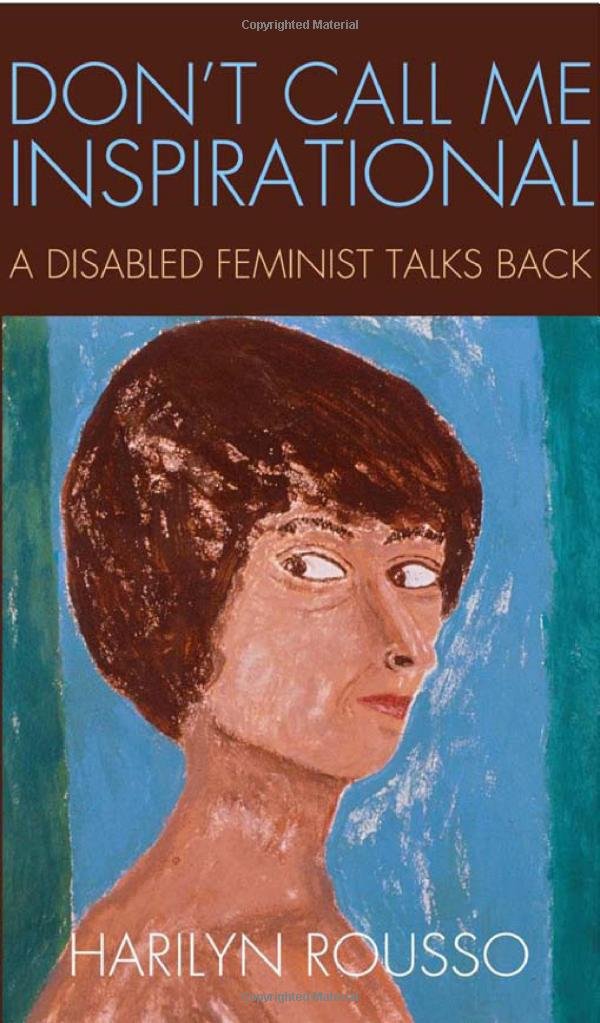Rousso (that's a Sephardic name, btw) writes about discovering herself as an activist--for disability rights, for feminism, and when it was hard for her to find a real commitment from "feminists" to disabled people. She was a feminist first and came to disability issues about ten years later.
It took Rousso a while to come to disability rights activism, or even to being comfortable with the identity "disabled." She is honest about her self-discomfort, even shame, at being Other. But finally she experiences discrimination so egregious that she is forced to fight for herself: she gets expelled from a psychotherapy training institute because it was felt that Rousso's cerebral palsy symptoms (atypical facial expressions and speech) would be offputting to patients.
As you can infer from the title, Rousso is not down with being called out for being special because of her disability. Here's her cute analogy:
My feet are too large, for started--size twelve, huge for a woman. I have to go to a special shoe store. Oops, there's another word--special--that makes you thinkg I deserve the "inspirational" label.
But she gets more serious
I know, I know, if you were me, you'd never leave your house and maybe even kill yourself. So I am inspirational because I haven't committed suicide--yet. ... "Assisted suicide"--that's what they call it. "Murder," "genocide"--that's what many of us with disabilities call it. Pressure to die to convenience others--people who can't imagine having a good life on a respirator or feeding tube (lack of imagination)...
I'll tell you why I am inspirational: I put up with barriers, the barricades, the bullshit you put between us to avoid confrontating something--probably yourself--and still pay the rent on time and savor dark chocolate. Now that takes courage.
There's also real talk, about being a sibling, an adult daughter, and being a partner, Gene. Not with CP necessarily, but the typical everydayness, like having a boyfriend who cares about dishwashing detergent being closed, but not if towel labels show. (I'm team Gene on both issues, btw)
I appreciated Rousso's insights about herself as a woman--that having been raised by a 1950s housewife, and because of her CP being deemed unable to take care of herself and others, she didn't feel feminine and was therefore drawn to social work and psychotherapy as a way of performing caregiving.
I like when she shows her caring by demanding that her people do better--that feminist conferences be held in accessible spaces, that accommodations be made for disabled people, that the extracurriculars also be accessible (since the real deals happen and friendships are cemented at hotel bars more than at the token disability panel).
I imagine I'm not the only one to disobey Rousso's "don't call me inspirational" edict. I do so because Rousso is an admirable activist, period. And also size twelves are pretty rad.
